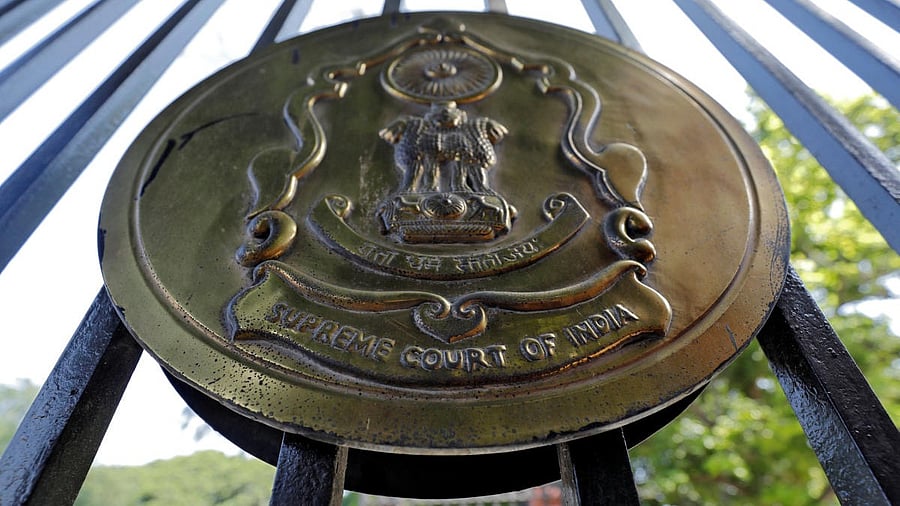
The emblem of Supreme Court is seen on a gate of the court.
Credit: Reuters Photo
New Delhi: The Supreme Court on Tuesday declined to entertain a plea by the National Commission for the Protection of Child Rights against the Punjab and Haryana High Court's 2022 judgment allowing a Muslim girl to enter into a valid marriage upon attaining puberty. Notably, the age of attaining puberty is 15 years according to applicable personal laws in Islam.
A bench of Justices B V Nagarathna and R Mahadevan questioned the locus standi of the child rights panel and dismissed the special leave petitions.
The court held the NCPCR was a stranger to the litigation and had no locus standi to challenge the High Court's judgment.
"If the High Court, in exercise of its power under Article 226, seeks to extend protection to two individuals, the NCPCR has no locus standi to challenge such an order," the bench said.
The court also emphasised romantic relationships between persons on the verge of majority age should be seen differently.
"There is POCSO Act, which takes care of the penal cases, but there are romantic cases also where teenagers on the verge of majority run away, where there are genuine romantic cases, they want to get married, don't read such cases the same as criminal cases. We have to differentiate between criminal cases and this," the bench said.
Dismissing the plea, the court opined no question of law arose in the matter.
The court also sought to highlight the trauma faced by the girl loves a boy, who is sent to jail, because her parents would file a POCSO case to cover the elopement.
The NCPCR contended that the personal laws were being claimed as a defence to commit criminal acts in way of young girls being married off.
When the Supreme Court had in October, 2022 issued notice in the matter, it had declared the High Court's judgment would not be used as a precedent for other similar cases.
It had then appointed senior advocate Rajshekar Rao to assist the court in the matter as he is the Amicus in a similar case.
The challenge to the High Court’s order, through a Special Leave Petition (SLP) filed by NCPCR was on the grounds of violation of the Prohibition of Child Marriage Act and the Prevention of Children from Sexual Offences Act. Furthermore, the plea stated that such laws are secular in nature, therefore the applicability cannot be hindered on the basis of religion.
The High Court, however, had held such a marriage would not be void in terms of Section 12 of the Prohibition of Child Marriage Act 2006.
The High Court was considering a writ petition seeking a 16-year-old Muslim girl's release from a child custody agency in Panchkula as she wished to reside with her 26-year-old husband, Javed. The statement of the girl before the magistrate under section 164 CrPC had formed the basis of the writ.
The minor girl through her advocate had told the high court that she had run from the house along with the 26-year-old out of her own will as she wished to marry him. The Nikah was performed on July 27, 2022.
The High Court had also granted such protection to another minor Muslim Girl. Earlier a 16-year-old girl had married a 21-year-old Muslim boy against families' wishes. The marriage was then challenged in the Supreme Court by the National Commission for Protection of Child Rights (NCPCR) in appeal.
